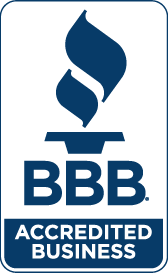Undisclosed Assets Not a Basis to Reopen a Chapter 13 Case

In a recent decision, the Massachusetts Bankruptcy Court denied a Chapter 13 Trustee’s motion to convert to Chapter 7 several long-closed Chapter 13 cases after reopening the cases for the purpose of administering assets that were not disclosed by the debtors in their original filings. The Court answered “no” to the narrowly framed question whether a Chapter 13 case can be reopened to administer an undisclosed pre-petition asset for the benefit of creditors upon conversion to Chapter 7.
In each of the consolidated cases, the Chapter 13 debtors failed to disclose a pre-petition personal injury claim. From the record, it appears that each of these were an innocent nondisclosure and the claims may not have been known to exist at the time the bankruptcy cases were filed. Notwithstanding, the claims were pre-petition assets that should have been included in the bankruptcy estate.
The Court made the distinction between bankruptcy estate property in a Chapter 7 case in which estate property consists of “all legal or equitable interests” in property as of the date of filing (see 11 U.S.C. § 541(a)) and estate property in a Chapter 13 case, which consists of the same pre-petition assets plus any assets a debtor acquires until the case is “closed, dismissed, or converted.” (see 11 U.S.C. § 1306(a)). The Court made the further distinction between how estate property is treated in each kind of case. In a Chapter 7 case, non-exempt assets are generally liquidated and the proceeds distributed to creditors, whereas in a Chapter 13 case, debtors generally make distributions to creditors from post-petition income in an amount at least equal to the value of non-exempt assets. If these cases had been filed originally under Chapter 7, the undisclosed assets would have been subject to liquidation. Furthermore, notwithstanding the language at 11 U.S.C. § 544, which states that all property “scheduled” (i.e., listed) in the bankruptcy case remains property of the estate until abandoned, and 11 U.S.C. § 1327, which states that “all” assets vest with the debtor upon confirmation of a Chapter 13 plan, the local Chapter 13 plan as adopted in Massachusetts and the standard confirmation order contain language that states that assets remain property of the estate until the debtor receives a discharge.
Applying a strict interpretation of § 1327 and § 544, The Court stated: “Some courts have construed Section 1327 … to vest in the debtor only property of the estate that is “administered” or “dealt with” under the plan. Citation omitted. Courts have suggested that if an asset is not disclosed, it cannot be abandoned or administered. This ignores the plain text of both Section 1327 and Section 554. Unlike Section 554, Section 1327 does not say that “only property that is scheduled and administered” vests in the debtor. It instead provides that “all of the property of the estate” vests in the debtor. … When a debtor completes payments under a Chapter 13 plan and a discharge is entered, the case is fully administered. In these cases, as provided in the confirmation orders, all property of the estate, including any undisclosed assets, was administered and vested in the debtors upon entry of their discharges. As a result, there is no property of the estate to be administered if the cases were reopened and converted to cases under Chapter 7.”
Bankruptcy debtors should view this opinion for the narrow proposition for which it stands rather than as an invitation not to disclose assets. A wilful failure to disclose assets could lead to significant sanctions including the denial of an exemption, the denial of a discharge, or criminal prosecution for bankruptcy fraud.





